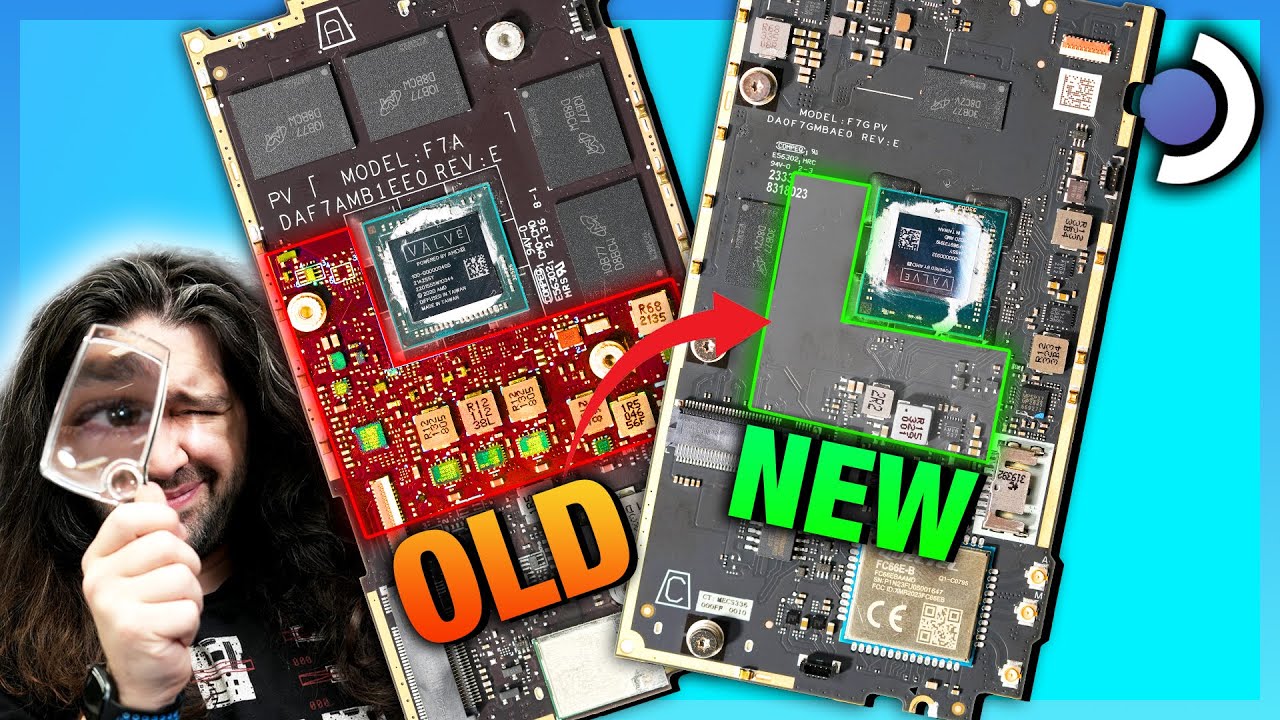The new Valve Steam Deck OLED didn’t just change the screen: Almost every part of the device has had some sort of revision, from the screws to the power topology of the motherboard. Some of these changes happened silently in the Voyager platform refresh for the Steam Deck, but the majority of large changes are brand new. Memory underwent relocation and now uses better modules, the cooling solution has had its fan flipped and thickened, and the controller component PCBs have had some consolidation and durability improvements. In this tear-down of the new Steam Deck OLED, we’ll compare the new Steam Deck vs. the original, old Steam Deck “LCD” model.



The benefits of having decent people running a privately owned company is pretty astounding. Once you go public and have a board that legally has and wants to make as much money as possible, it seems like things are sure to go to shit.
Some days, I question why humanity ever allowed public companies to exist. That very concept seems to be creating a lot of societal drawbacks these days.
Seems like a fine idea on paper. Someone has a real good thing going and other people can help bankroll them to expand and share whatever it is all across a country instead of just one little area.
In practice it turned into a hellscape.
The issue is the perpetual ownership.
If I lend you money, you only own me the money I’ve lended+interest. I’m not going to have a stake on your future businesses, nor have any decision power over you, it isn’t in my power to make sure you squeeze the most money possible over your job. You pay the money back and we are done.
The problem with that is lending money to a business that needs money also means you’re risking if the business fails that you’re never getting your money back. No one wants to risk their $100,000 in hopes of getting back $108,000 a year from now.
Even then you can just add a higher interest rate. You absolutely don’t need to held the company hostage until the heat death of the universe.
Are… Are you suggesting that there are potential ways a public company system could’ve actually been handled better, rather than the concept itself being flawed by nature?
I’m not saying I disagree, I’m just saying that possibility never occurred to me for some reason. (Maybe it’s my justice sensitivity complex acting up)
Yesn’t?
Like, the whole point of a public traded company is that anyone can come in and give money to the company and, in turn, they get money when the company is doing well, so the money you’ve paid is, hopefully, not lost.
I don’t know about you, but on paper, that sounds like bonds and basically every type of debt in existence.
The difference is the perpetual ownership of the company by shareholders. Consider someone who lent a company 20k, they now have an asset that grew immensely in value, it gives them money quarterly/yearly/whatever, AND they have decision power on the company, despite the fact that they have earned 100x what they lent.
Just changing the idea of stock to be something with an expiration date would remove most of the weirdness of the system, but at that point it isn’t really a public-traded company, is it?
Back when corporations were invented, you didn’t have the option of trading your stock multiple times a day. Corporations could afford to take the long view, and people held on to the stock.